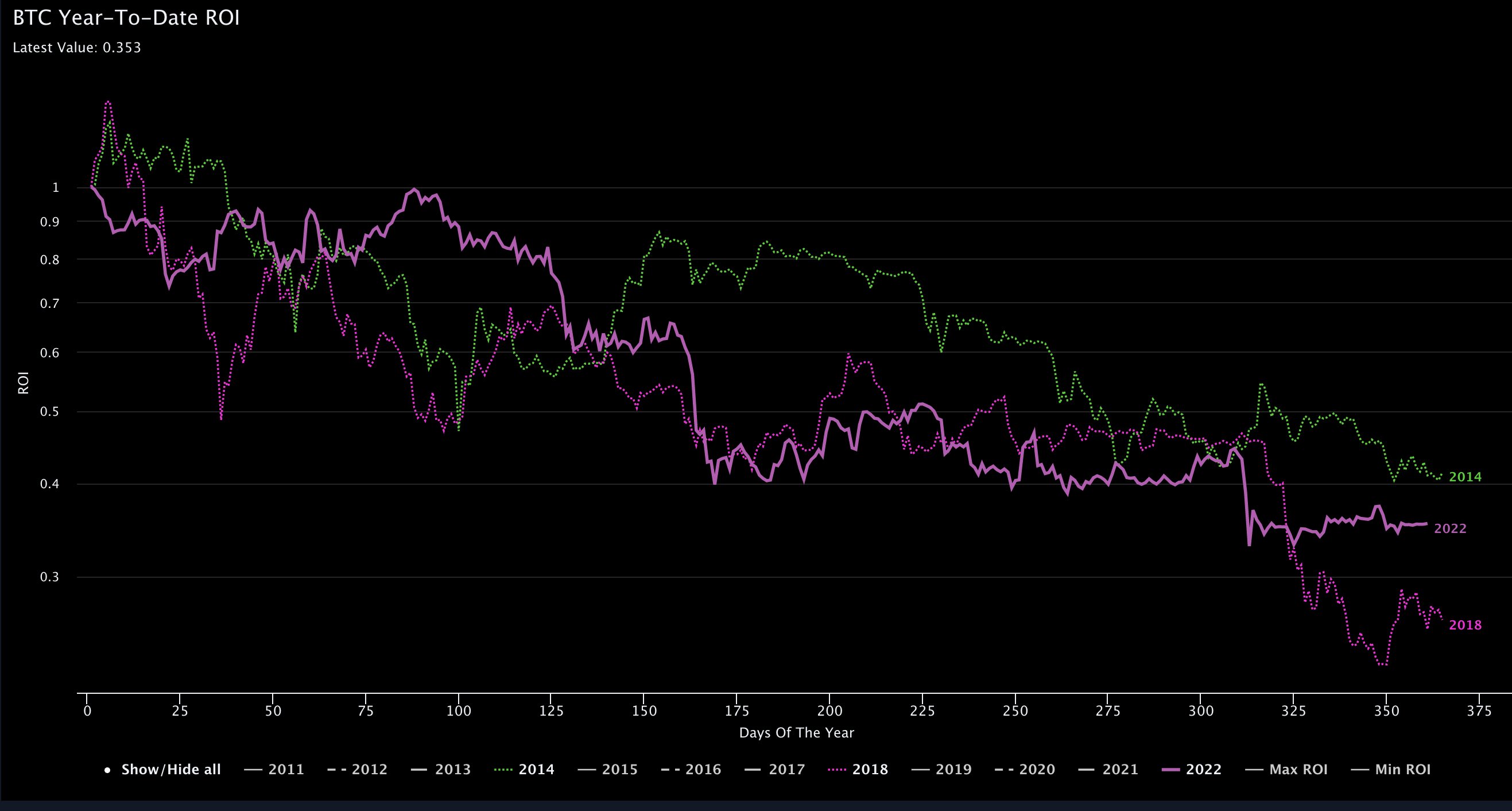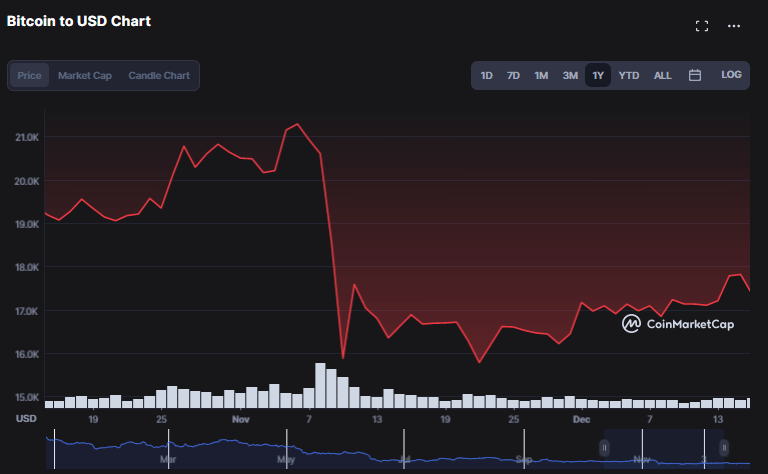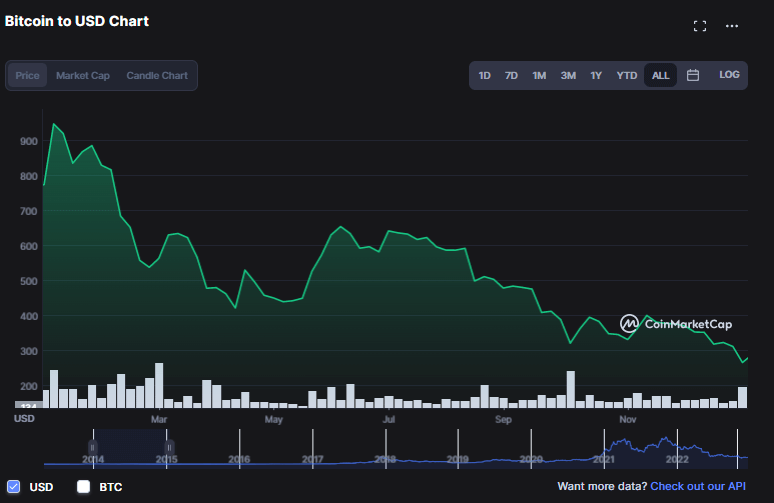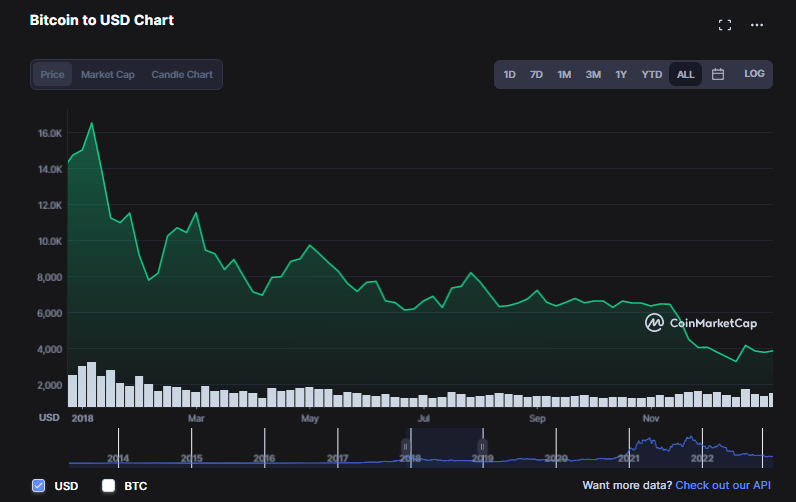Recent data indicate that the current bear market has fared better than in 2018 but worse than in 2014 in terms of ROI.
The price of bitcoin, which started the year at $50,700, has declined by more than 66% to $16,847.51 at press time, according to CoinMarketCap.

It was the Russia-Ukraine war that triggered the crypto bear market in 2022. Further, in the aftermath of Terra-Luna’s collapse, it became worse for the entire crypto market, including Bitcoin.
The market experienced new lows following the crash of FTX on Nov. 7, with Bitcoin trading between $15k and $17k in a new sideways range.

In the wake of the FTX contagion, several companies filed for bankruptcy, including BlockFi and Genesis. The Fed’s rising interest rates to fight inflation didn’t help the situation for Bitcoin either.
A modest rally on Dec. 27 lifted Bitcoin just below the $17k range before it fell by 1.5%.
Bear Cycles of 2014-2015
After reaching $1,000 in December 2013 for the first time, Bitcoin’s price tumbled to $601.78 within a month, entering a prolonged bear market. Over the next two years, the cryptocurrency continued to decline, reaching a low of $320 in June 2014 before bottoming out at around $170 in January 2015.

A long cryptocurrency winter of 2014 was attributed to Mt. Gox’s hack, which halted Bitcoin withdrawals in early February. Eventually, the platform halted all trading and filed for bankruptcy in Japan and the United States.
Several major financial authorities have also expressed concerns about Bitcoin. As a result, the general sentiment around Bitcoin remained negative until August 2015, when the trend began to shift.
The price of Bitcoin, which began 2014 at $773.44, dropped by more than 59% to $462.53 by the end of the year.
Bear Cycles of 2018
After recovering to $1,000 in January 2017, Bitcoin continued to rally to as high as $20,000 by the end of that year. However, Bitcoin’s peak of $20,000 was short-lived, as it subsequently lost more than 81% of its value within a year to $3200.

A massive hack of Coincheck, a Japanese cryptocurrency exchange, began the crypto winter of 2018, which resulted in the loss of about $530 million in NEM (XEM).
A further blow came in March and June when Facebook and Google banned ads for ICOs and token sales. Also contributing to the bear market were regulatory efforts to regulate the crypto market, with the US Securities and Exchange Commission rejecting applications for BTC exchange-traded funds.
Bitcoin’s price, which began 2018 at $14,978, fell by more than 74% to $3746.71 at the end of the year.
The post BTC bear market is worse than in 2014 but better than in 2018 appeared first on CryptoSlate.






